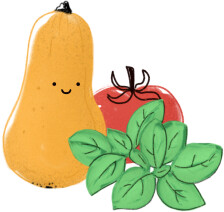Knoblauchgras Standardsorte

Variety
Knoblauchgras Standardsorte
created by Unkraut-Jäti at 22.04.2025
Season Overview
Sowing
Harvest
J
F
M
A
M
J
J
A
S
O
N
D
Description
Garlic grass - your versatile fragrant plant with an edible bonus! Are you looking for an easy-care perennial with Mediterranean flair that is both decorative and edible? Garlic grass, also known as "Society Garlic", is a true all-rounder for the flower bed and kitchen! What makes it so special - Flowering: Delicate purple umbels from June to September - Aroma: Mild garlicky scent (without annoying vapors) - Growth habit: Forms pretty grass-like clumps (30-50 cm high) - Winter hardiness: Up to around -10°C (winter protection advisable in harsh locations) Culinary use - Leaves: Finely chopped like chives for salads, soups or herb butter - Flowers: Edible decoration for summer dishes - Special feature: Tolerated alternative for garlic allergy sufferers Practical tips - Ideal for herb spirals and rock gardens - Acts as a natural moth repellent in the closet - Perfect bee pasture in summer Why it enriches your garden: This uncomplicated plant combines ornamental value with benefits - its delicate flowers attract bees, while the leaves enrich your kitchen. And best of all: unlike real garlic, the smell only sticks to your fingers, not your breath! Tip: Plant it in groups of 3-5 specimens - this will show off the purple flowers particularly well. You can harvest the leaves all year round as long as it is frost-free. Garlic grass (Tulbaghia violacea) is often confused with the more common cut garlic (Allium tuberosum) and sometimes traded as such. Who it's perfect for: - Herb lovers with little space - City gardeners (also tolerates air pollution) - Anyone who appreciates edible ornamental plants Tulbaghia violacea brings Mediterranean flair to your garden - without the annoying garlic scent!
F1 Hybrid
Not frost resistant
Growing tips
- Sun: Full sun for abundant flowering
Details
Light requirement
Sunny
Water requirement
Dry
Soil
Light (sandy)
Nutrient requirement
Low
Plant distance
25 cm
Row spacing
40 cm
Seeding depth
0.5 cm
Companion Plants
No companion plants
Antagonistic Plants
No antagonistic plants
Diseases
Root Rot
Pests
No pests